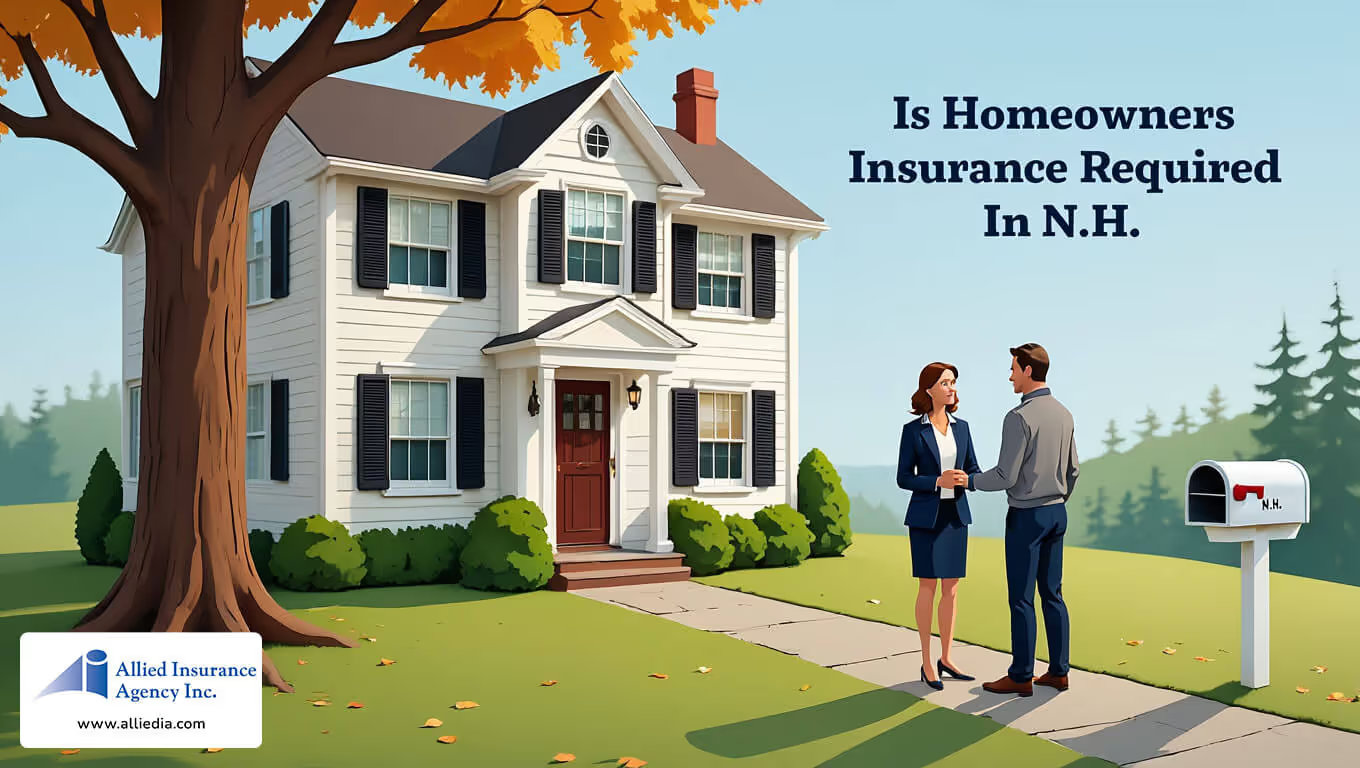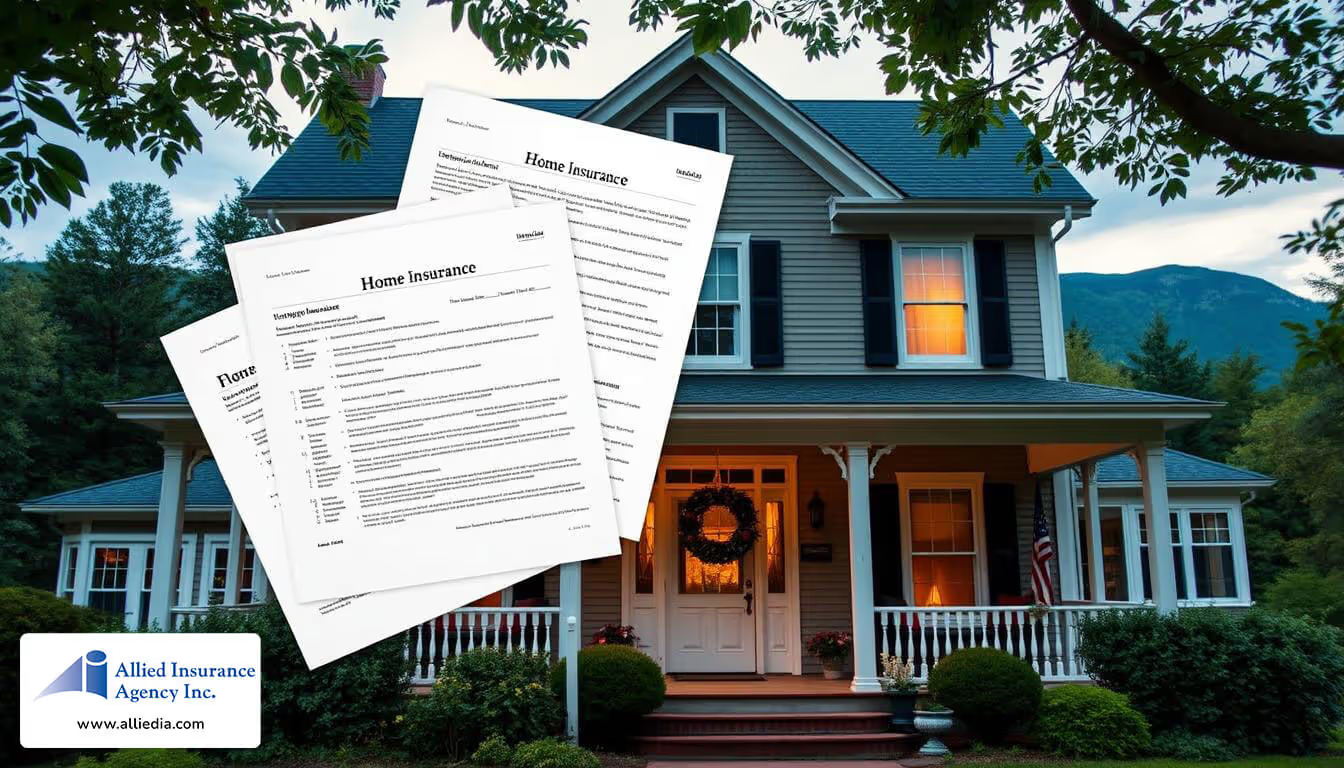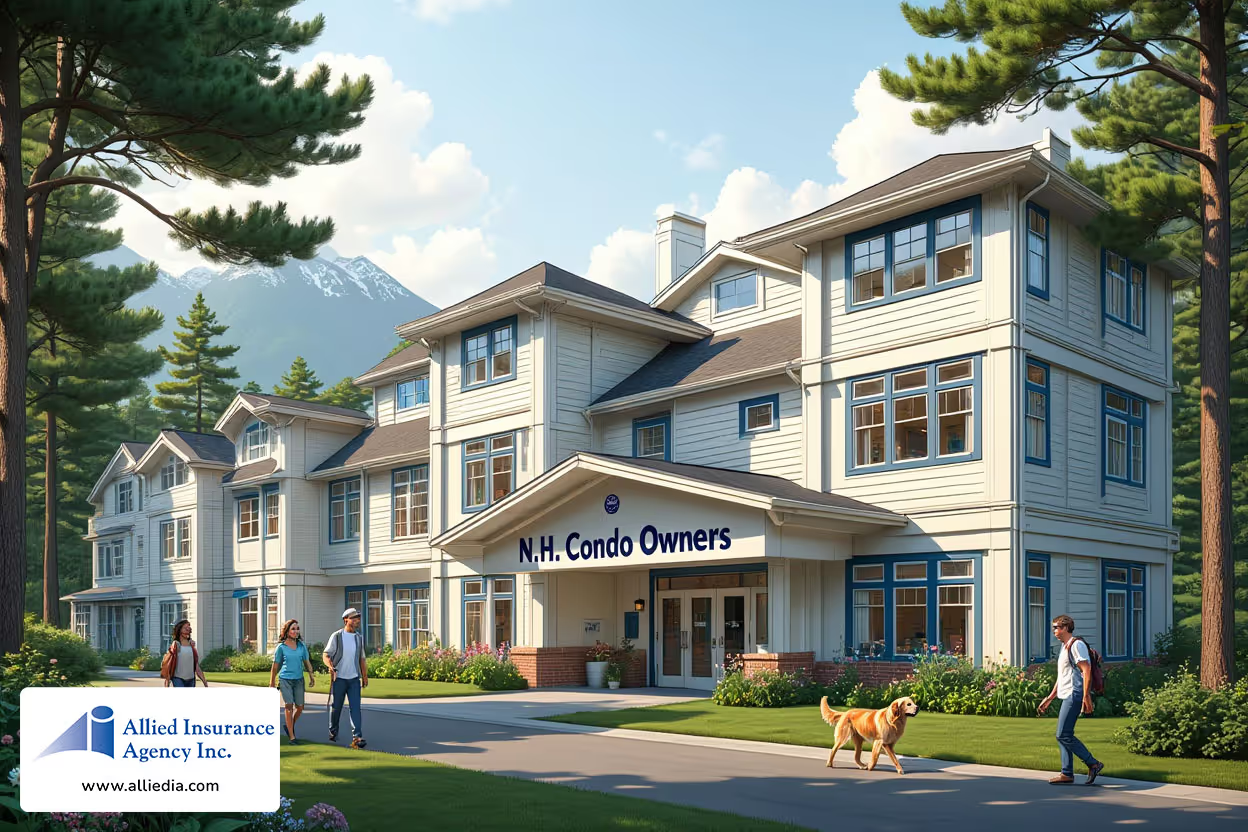
What New Hampshire Condo Owners Need to Know About Home Insurance
Did you know that ice dams cause over $10,000 in average damage to properties each winter in New England? For condo owners in Concord, Bow, and Hooksett, winter hazards like frozen pipes and snow buildup demand special attention—especially when securing coverage.
As a New Hampshire condominium owner, you have unique insurance needs that often go beyond what your condo association covers. Your master policy may protect the building’s structure, but you’re responsible for protecting interior finishes, personal possessions, and liability exposure. Contact Allied for a N.H. condo insurance quote.
Flood risks near the Merrimack River add another layer of complexity. Standard policies often exclude water damage, leaving gaps that require supplemental protection. Meanwhile, local premiums average $1,000 annually—48% below the national rate.
Understanding a building’s master policy is critical. It may cover exterior walls but leave personal belongings unprotected. Tailoring a plan to address regional threats ensures full financial safety.
Understanding New Hampshire Condo Insurance Requirements
State laws may not require coverage, but lenders and associations do. While New Hampshire doesn’t mandate condo insurance, 86% of financial institutions demand it for mortgages. Local associations in Bow or Concord often enforce stricter rules.
Why Coverage Is Non-Negotiable
Master policies cover shared spaces like roofs and hallways, not your unit’s interior. A Hooksett resident faced $25,000 in flood damage—uncovered by their association’s policy. Personal belongings and upgrades need separate protection.
How State Laws and Lender Rules Differ
Banks require HO-6 policies to safeguard their investment. Meanwhile, associations may fine owners for non-compliance. Shared gyms or pools in Concord complexes create liability gaps—another reason for dual coverage.
The Role of a Condo Master Insurance Policy
Master policies act as the backbone of protection for shared spaces in multi-unit properties. They typically cover building structures like roofs, exterior walls, and common areas such as lobbies or gyms. In New England, 72% of complexes follow "studs out" policies, shielding everything beyond a unit’s interior walls.
What’s Covered: Building Structures and Common Areas
These policies vary by location. For example, Bow associations often include original flooring, while Concord legally mandates coverage for shared utility rooms. Key protections usually extend to:
- Roofs and exterior walls
- Elevators and hallways
- Landscaping and maintenance sheds
How Local Associations Customize Policies
In Hooksett, structural limits may differ from Bow due to building age. Historic Concord properties often require special clauses for fixtures. Rural areas might exclude detached structures unless specified.
Always review your condo association’s master policy to confirm coverage for amenities like pools or parking garages. Missing details could leave you financially exposed.
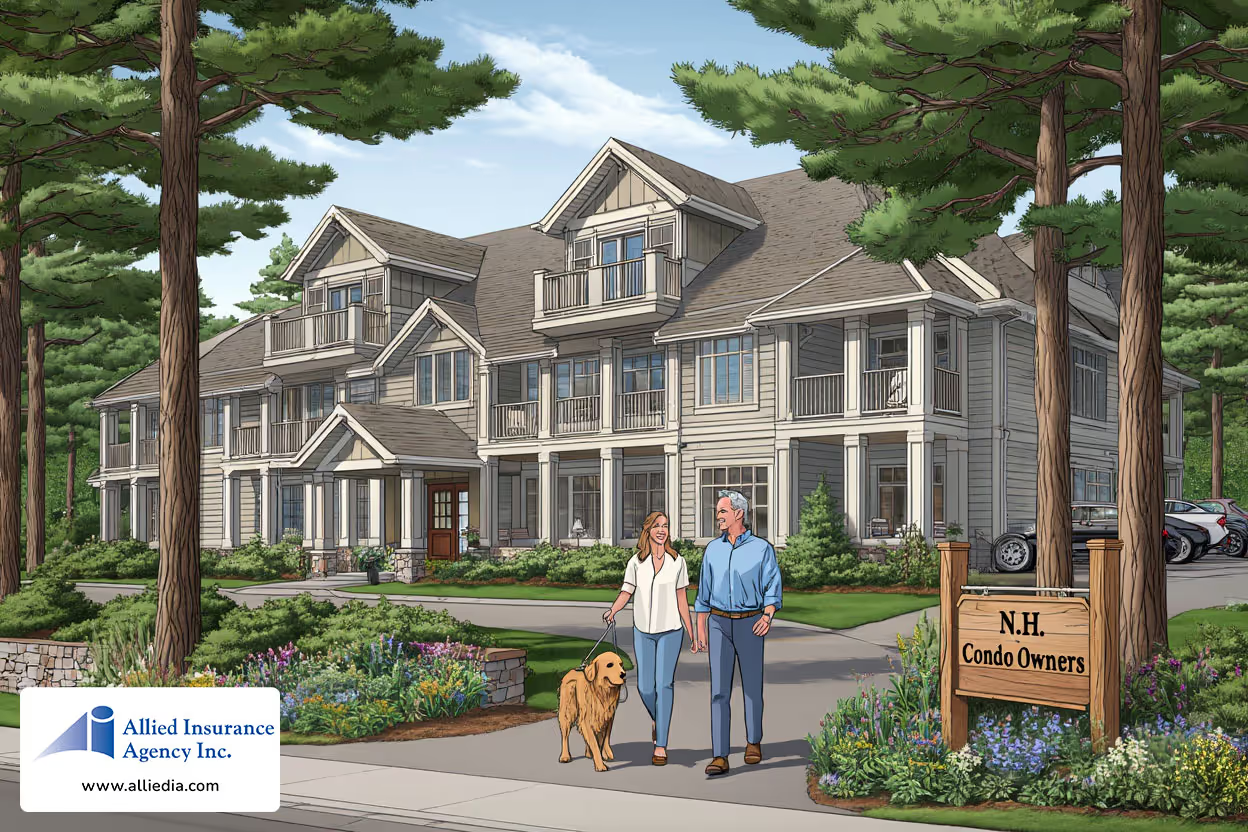
Why Individual Condo Insurance is Still Essential
Custom upgrades and personal items often fall outside standard association coverage. Master policies protect shared spaces, but your unit’s interior and belongings need separate safeguards.
Bridging the Gaps in Protection
In Bow, some associations enforce "bare walls" policies, excluding everything beyond original construction. A Manchester fire revealed harsh gaps when a resident’s custom cabinetry wasn’t covered. Water damage to luxury vinyl plank flooring averages $15,000 in claims—another common exclusion.
Shielding Upgrades and Valuables
Granite State owners frequently renovate kitchens and baths. Quartz counters and smart appliances require documentation for claims. For Hooksett antique collectors, special riders add critical protection. Even window treatments may need explicit coverage.
Personal liability coverage is equally vital. If a guest slips in your unit, individual condo insurance handles medical costs. Review your policy annually to align with renovations and regional risks.
What Common Areas Does the Master Policy Cover?
Riverfront properties in Hooksett face unique coverage challenges. Master policies typically protect shared building structures and common areas, but inclusions vary by location. Understanding these details prevents unexpected gaps.
Hallways, Roofs, and Shared Amenities
Most policies cover these key spaces:
- Roofs and exterior walls (94% include snow removal liability)
- Elevators, lobbies, and fitness centers
- Outdoor amenities like pools or docks (seasonal clauses may apply)
Parking garages in Concord high-rises often have separate liability terms. Landscape lighting thresholds also differ by condo association.
Typical condo insurance also includes “loss assessment” coverage—this protects you if your association’s master policy deductible or shared loss is assessed to unit owners. Without this, you may face large unexpected costs. Contact Allied for a N.H. condo insurance quote to ensure you're fully covered.
Unique Considerations for Hooksett Communities
Flood-prone complexes near the Merrimack River require extra endorsements. Basement storage rooms might need added fixtures coverage. Shared workshops in Bow highlight how local rules shape protections.
Always review policy documents for exclusions like detached sheds or ski racks. Hooksett’s riverfront community standards often exceed statewide norms.
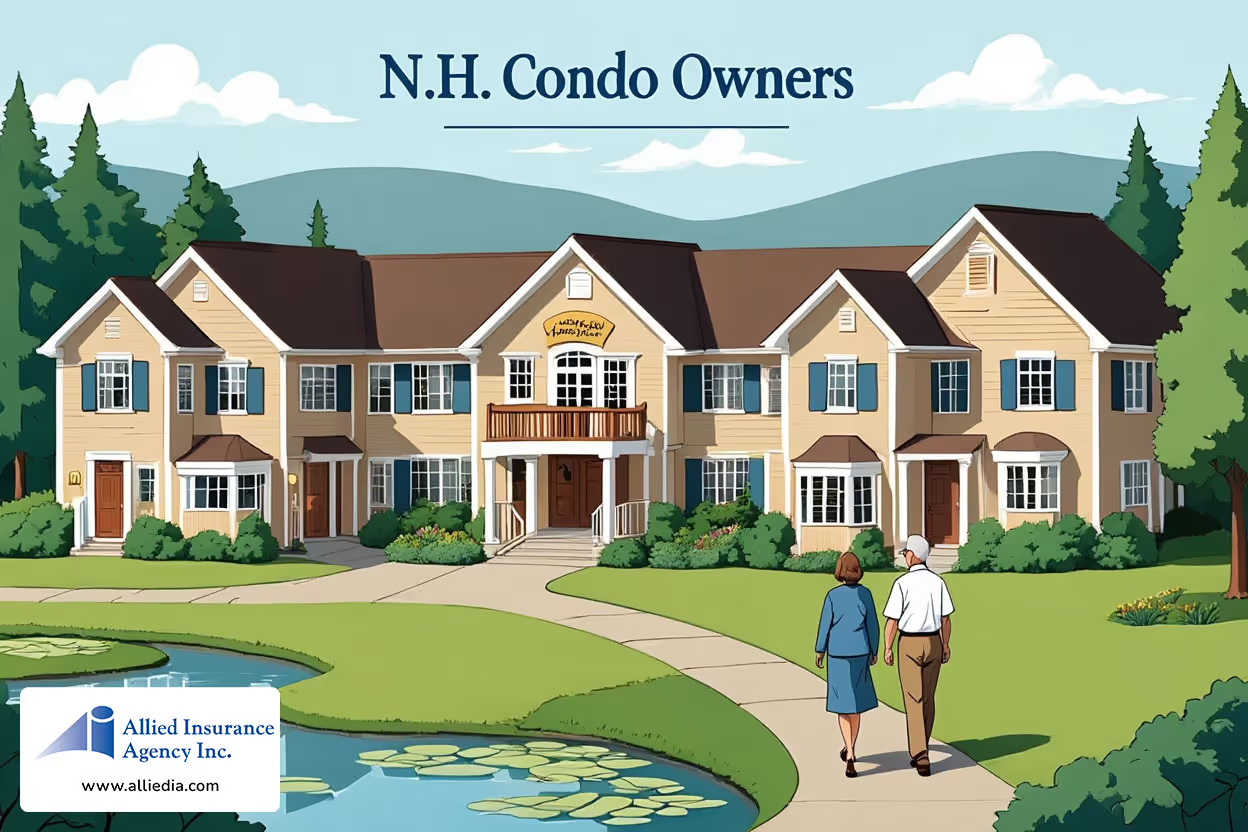
How Much Does Condo Insurance Cost in New Hampshire?
Premiums for condo coverage vary widely across the Granite State. Urban areas like Concord average $650 yearly, while rural regions climb to $850. These differences stem from local risks, property size, and claims history.
What Shapes Your Premium?
Location tops the list. Flood zones near *Hooksett* add 10–15% to costs, while *Bow’s* historic districts trigger age-based pricing. Square footage also matters—1-bed units cost 30% less than 3-beds.
A clean claims history slashes rates by 15–22%. Installing security systems in *Manchester* metro units unlocks extra discounts. Renewable energy upgrades, like solar panels, may qualify for credits.
Urban vs. Rural Price Gaps
Concord’s lower premiums reflect easier access to emergency services. Rural areas face higher insurance costs due to longer response times and wildfire risks. Bundling auto and condo policies saves 20%, a key money-saver for both regions.
Always request a personalized quote. Factors like parking type (garage vs. street) or upgraded plumbing can further adjust your coverage price.
Local Risks for New Hampshire Condo Owners
Winter storms and river floods create unique challenges for property owners in the region. From ice dams to basement flooding, understanding these threats ensures proper protection for your investment.
Winter Hazards: Ice Dams and Frozen Pipes
Ice dams cause an average of $8,500 in damage per claim in Sullivan County. Flat roofs in *Bow* require snow load calculations to prevent collapse. Proper pipe insulation is legally mandated for many units.
Emergency kits with thermal blankets and shutoff tools help *Hooksett* owners react fast. Standard policies often exclude mold from slow leaks—a common post-thaw issue.
Flood Risks Near the Merrimack River
42% of riverside properties need separate flood insurance. Concord’s updated 100-year floodplain maps show expanded high-risk zones. Basement improvements in these areas must meet NFIP standards.
Community collaboration improves flood defenses. Sandbag stations and shared pumps reduce liability during spring melts. Fire department access routes also impact premiums in flood-prone neighborhoods.
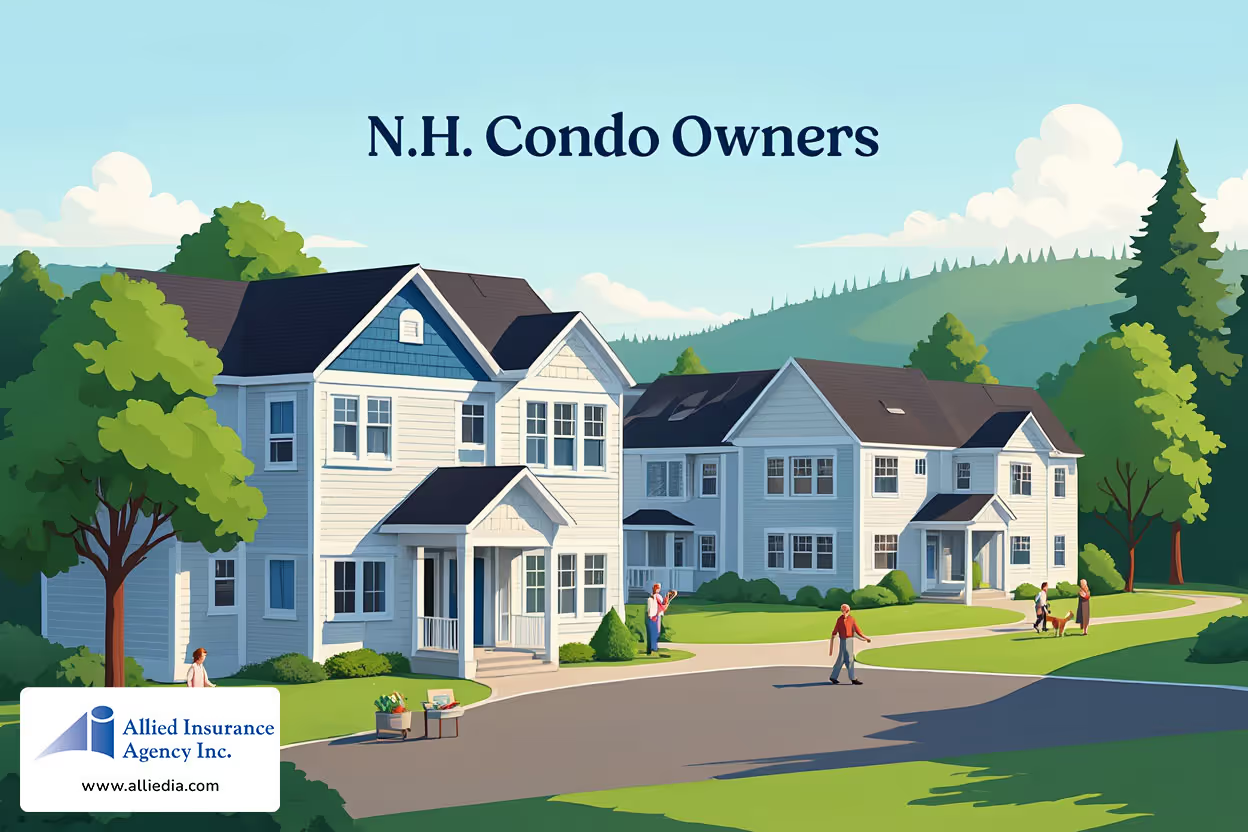
How to Get a Condo Insurance Quote in New Hampshire
Securing the right protection starts with understanding how to request a tailored quote. Owners in Concord or Bow can choose between local experts and digital tools—each offering distinct advantages.
Working with Local Agents vs. Online Tools
Independent agents provide personalized advice, especially for complex claims. HPM Insurance, serving 89% of Seacoast associations, offers free master policy reviews. Their expertise helps navigate Hooksett’s flood clauses or Bow’s historic district rules.
Online platforms deliver speed, with quotes in 4–7 minutes. However, automated systems may miss regional nuances. Compare providers like I24 Insurance and Allied for coverage limits.
Questions to Ask About Your Association’s Master Policy
Before applying, gather these documents:
- Association bylaws (verify compliance in Hooksett)
- Renovation records for custom upgrades
- Parking space agreements (common in Concord high-rises)
Ask about policy exclusions—like detached storage sheds or seasonal amenities. Timing matters too; renewals often lock rates 30 days early.
Red flags include vague liability terms or inadequate loss-assessment coverage. Local agents can decode these details faster than generic online forms.
Conclusion: Safeguarding Your New Hampshire Condo
Smart owners combine knowledge with the right safeguards. In Concord, updated floodplain maps may demand extra coverage, while rural areas prioritize wildfire clauses. Bow residents should mark calendars for October pipe insulation checks.
Annual policy reviews prevent 63% of gaps—like Hooksett’s overlooked flood endorsements. Working with NH-licensed agents ensures local risks like ice dams or Merrimack River surges are addressed.
With 98% satisfaction rates for tailored plans, investing in full protection pays off. Contact Allied for a N.H. condo insurance quote to compare options tailored to your unit.

